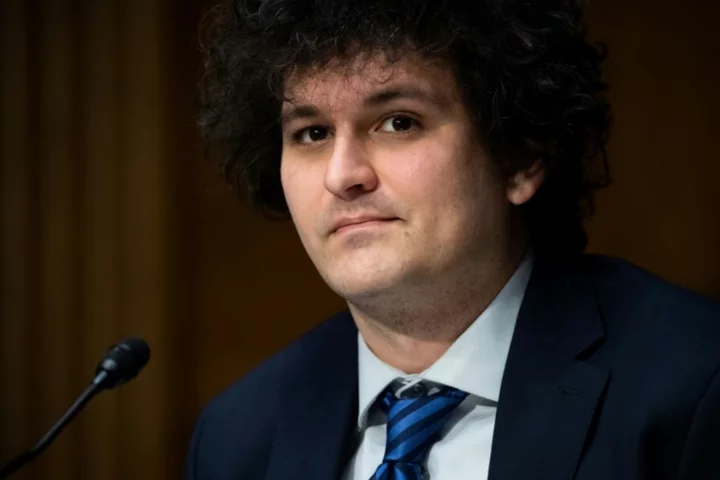Teenagers often like to have the latest gadgets and trainers, but if a young person suddenly has the ability to splash cash around, with no obvious explanation for their wealth, it could be a warning sign of money muling. Money muling happens when people are persuaded to let cash flow through their bank account in exchange for money or gifts – and young people in particular may be targeted. According to figures released by UK Finance and the fraud prevention body Cifas, young people under the age of 21 account for around one in five cases where money muling activity is suspected. While money muling may be seen as an opportunity to make some easy cash, it’s actually a criminal offence. The cash flowing through bank accounts is often the proceeds from crime. UK Finance and Cifas run a campaign called Don’t Be Fooled, which has developed free PSHE (personal, social, health and economic education) resources for schools, to help young people learn about the dangers and consequences of becoming a money mule. The new schools programme is aimed at youngsters aged 10 to 14. To find out more about the dangers of money muling – and the warning signs for parents to look out for – I asked Paul Maskall, manager of fraud and cybercrime prevention at UK Finance, for his expert insights: How can parents talk to children and teenagers about money mule activity and explain what it is? Paul says: “Even at the best of times, we aren’t always good at valuing and protecting our data, personal information or private details which we store digitally.” He says it’s important for parents to explain what money mules are, “to ensure that the newer generation have a better understanding of how to protect themselves.” He continues: “By doing so, it gives them more of an intuitive defence and understanding of the risk of people wanting to exploit them and gain access to their account, for the purposes of laundering money.” How can young people themselves avoid getting involved in money muling? Maskall stresses the importance of keeping accounts and personal information private. He says: “Criminals seek to manipulate you with a promise of gifts, rewards or a percentage of the funds sent through your account.” People should avoid opening a bank account in their name for someone else, allowing their bank account to be used to send and receive funds for other people, or sharing PINs and passcodes, he says. While criminals will often seek out younger people to become money mules, it’s also important to remember that anyone can be targeted, he adds. What are the warning signs that your child could be involved? “Tell-tale signs that your child might be involved in money muling could be them suddenly having extra cash, buying expensive new clothes or top-of-the-range mobile phones and gadgets with very little explanation as to how they got the money,” Maskall explains. “They may also become more secretive, withdrawn or appear stressed sometimes, becoming more fixated on communication and phone usage.” What are the consequences of money mule activity? Some people may see requests to pass money through their account as harmless – but they could be making a big mistake. “Criminals need money mules to launder the profits of their crimes and frequently target young people, who are often unaware of the consequences of them agreeing to do so,” says Maskall. “Allowing a bank account to be used in this way is a crime and can result in a criminal record and the account being closed. “You could go to prison for up to 14 years and it can also lead to the individual finding it difficult to obtain mobile phone contracts or access financial products and credit, including student loans.” What should parents do if they think their child or someone else they know might be involved in money muling? “It’s important for parents and guardians to remind their children of the potential approaches that they may receive from criminals,” says Maskall. He says if any parents or guardians are worried that someone they are close to might be caught up in money muling, they can contact Crimestoppers anonymously on 0800 555 111. Where can parents go to get support or seek further information and how can communities stay safe? Maskall says: “We encourage everyone to visit the Don’t Be Fooled website for more information on the risk of money muling and how to stop the signs. www.moneymules.co.uk. “It is important to remember that anyone can be at risk and speaking openly and educating one another about the harm and risks involved will benefit others.” Read More From tofu chicken wings to chickpea bacon – how and why you should be making plant-based meat at home Holly Willoughby channels Gwyneth Paltrow with ‘orgasm anxiety’ blog post Do it for the Gram: Speedy but spectacular goat’s cheese linguine Charity boss speaks out over ‘traumatic’ encounter with royal aide Ukraine war’s heaviest fight rages in east - follow live
Teenagers often like to have the latest gadgets and trainers, but if a young person suddenly has the ability to splash cash around, with no obvious explanation for their wealth, it could be a warning sign of money muling.
Money muling happens when people are persuaded to let cash flow through their bank account in exchange for money or gifts – and young people in particular may be targeted.
According to figures released by UK Finance and the fraud prevention body Cifas, young people under the age of 21 account for around one in five cases where money muling activity is suspected.
While money muling may be seen as an opportunity to make some easy cash, it’s actually a criminal offence.
The cash flowing through bank accounts is often the proceeds from crime.
UK Finance and Cifas run a campaign called Don’t Be Fooled, which has developed free PSHE (personal, social, health and economic education) resources for schools, to help young people learn about the dangers and consequences of becoming a money mule.
The new schools programme is aimed at youngsters aged 10 to 14.
To find out more about the dangers of money muling – and the warning signs for parents to look out for – I asked Paul Maskall, manager of fraud and cybercrime prevention at UK Finance, for his expert insights:
How can parents talk to children and teenagers about money mule activity and explain what it is?
Paul says: “Even at the best of times, we aren’t always good at valuing and protecting our data, personal information or private details which we store digitally.”
He says it’s important for parents to explain what money mules are, “to ensure that the newer generation have a better understanding of how to protect themselves.”
He continues: “By doing so, it gives them more of an intuitive defence and understanding of the risk of people wanting to exploit them and gain access to their account, for the purposes of laundering money.”
How can young people themselves avoid getting involved in money muling?
Maskall stresses the importance of keeping accounts and personal information private. He says: “Criminals seek to manipulate you with a promise of gifts, rewards or a percentage of the funds sent through your account.”
People should avoid opening a bank account in their name for someone else, allowing their bank account to be used to send and receive funds for other people, or sharing PINs and passcodes, he says. While criminals will often seek out younger people to become money mules, it’s also important to remember that anyone can be targeted, he adds.
What are the warning signs that your child could be involved?
“Tell-tale signs that your child might be involved in money muling could be them suddenly having extra cash, buying expensive new clothes or top-of-the-range mobile phones and gadgets with very little explanation as to how they got the money,” Maskall explains. “They may also become more secretive, withdrawn or appear stressed sometimes, becoming more fixated on communication and phone usage.”
What are the consequences of money mule activity?
Some people may see requests to pass money through their account as harmless – but they could be making a big mistake.
“Criminals need money mules to launder the profits of their crimes and frequently target young people, who are often unaware of the consequences of them agreeing to do so,” says Maskall. “Allowing a bank account to be used in this way is a crime and can result in a criminal record and the account being closed.
“You could go to prison for up to 14 years and it can also lead to the individual finding it difficult to obtain mobile phone contracts or access financial products and credit, including student loans.”
What should parents do if they think their child or someone else they know might be involved in money muling?
“It’s important for parents and guardians to remind their children of the potential approaches that they may receive from criminals,” says Maskall.
He says if any parents or guardians are worried that someone they are close to might be caught up in money muling, they can contact Crimestoppers anonymously on 0800 555 111.
Where can parents go to get support or seek further information and how can communities stay safe?
Maskall says: “We encourage everyone to visit the Don’t Be Fooled website for more information on the risk of money muling and how to stop the signs. www.moneymules.co.uk.
“It is important to remember that anyone can be at risk and speaking openly and educating one another about the harm and risks involved will benefit others.”
Read More
From tofu chicken wings to chickpea bacon – how and why you should be making plant-based meat at home
Holly Willoughby channels Gwyneth Paltrow with ‘orgasm anxiety’ blog post
Do it for the Gram: Speedy but spectacular goat’s cheese linguine
Charity boss speaks out over ‘traumatic’ encounter with royal aide
Ukraine war’s heaviest fight rages in east - follow live









